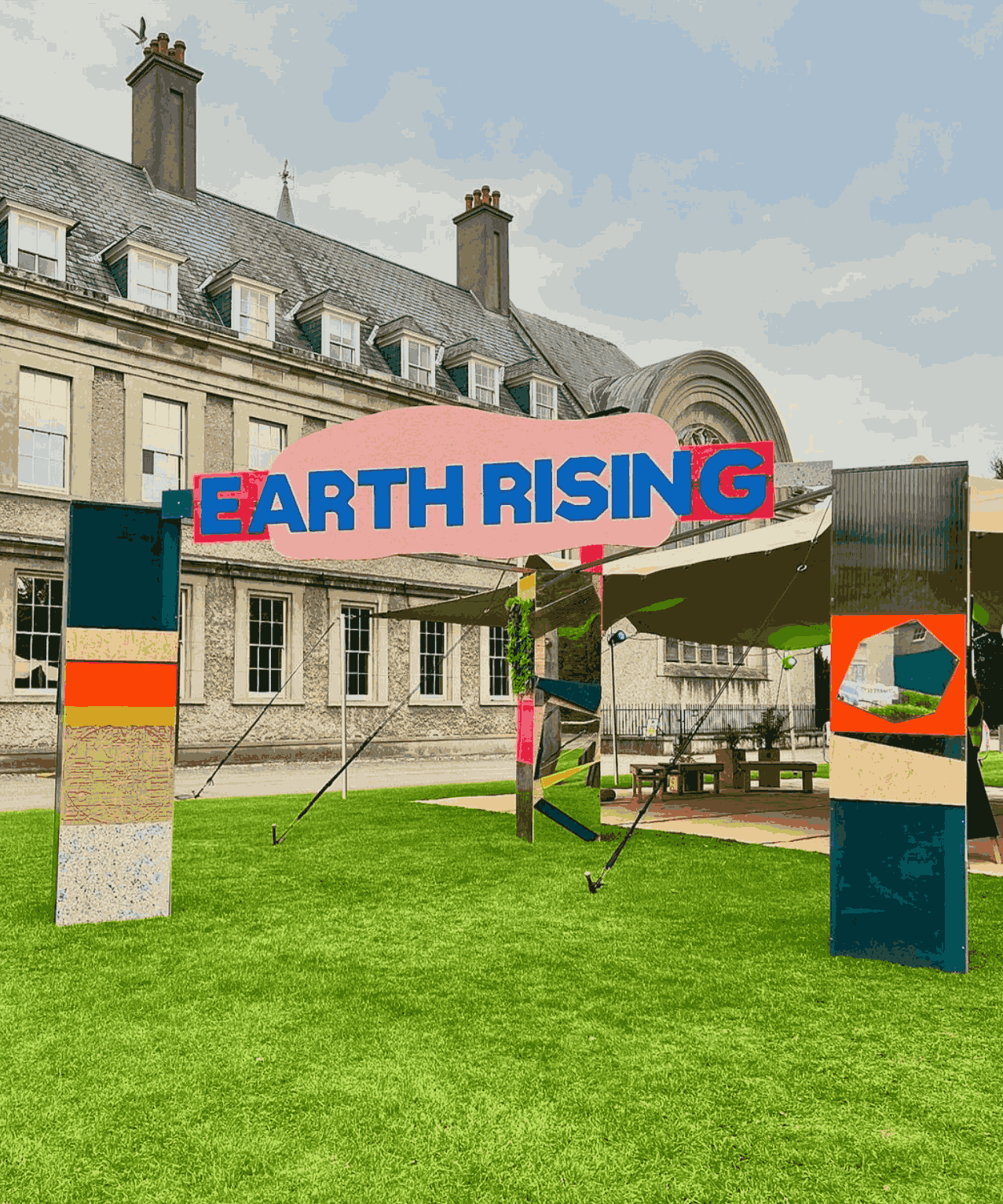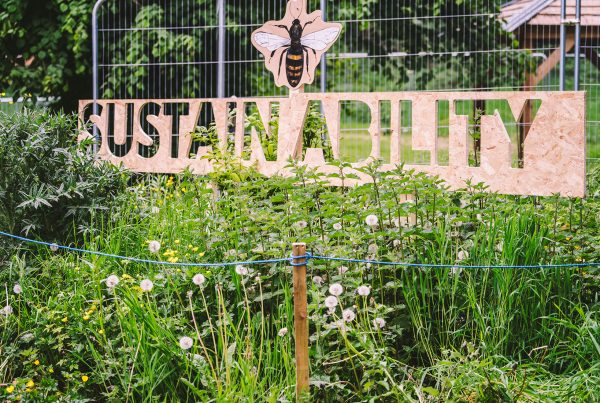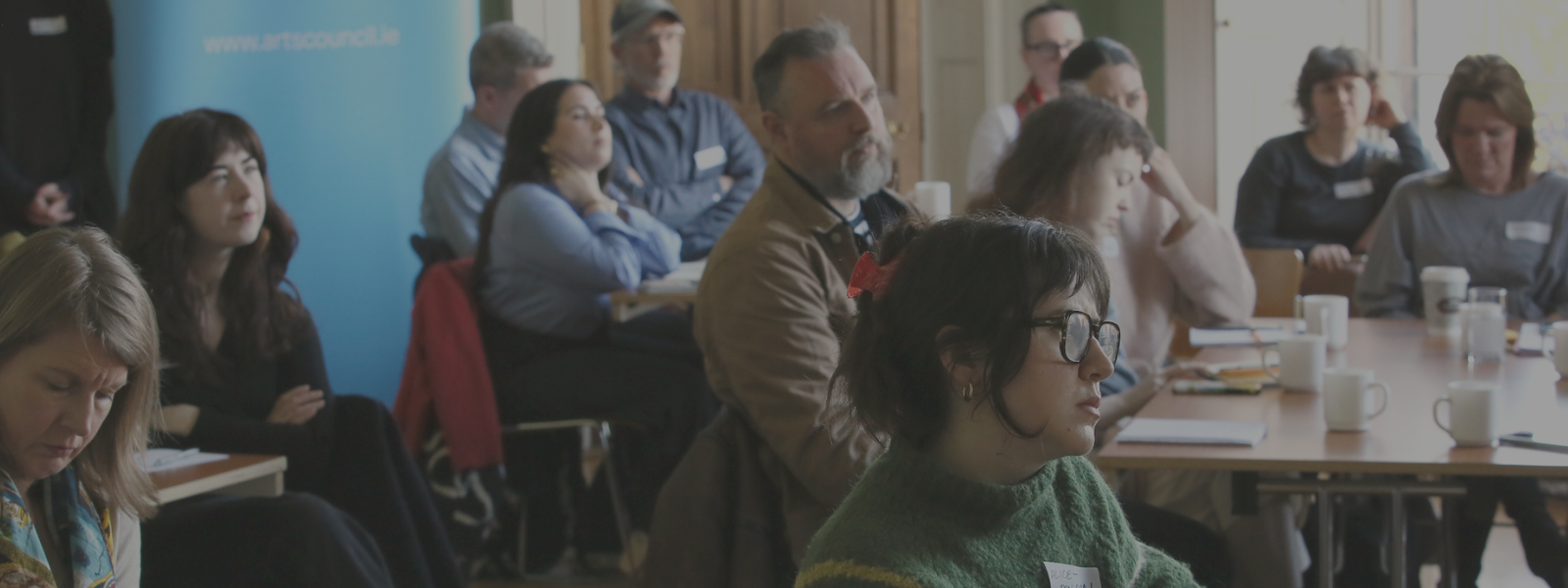Earth Rising aims to be a leading contributor to a transformative and thriving climate movement in Ireland. At Native, we know that festivals can act as acupuncture points within wider society to effect systemic change.
Each year, millions of people gather to enjoy festivals, but when they finish, a large ecological footprint is usually left behind. We teamed up with IMMA (Irish Museum of Modern Art) to reduce and manage the carbon footprint of Earth Rising as well as supporting the team to deliver a positive impact across their social inclusion, learning and education, and climate action objectives.
Here are five ways we worked together with IMMA to reduce the ecological footprint of Earth Rising 2024.
1. Outdoor Advertising:
The impact of media and digital advertising can often be forgotten in sustainability planning, however with 2 -4% of GHG Emissions globally being attributed to the digital sector, it is essential to balance the environmental impact of promotional campaigns with the need for inclusive and widespread awareness of events.
The billboards in Dublin City Centre advertising the festival used 100% off grid solar power. This was made possible by Micromedia Outdoors. As well as using their outdoor screens in the outdoor campaign, IMMA also used an advertising channel that boasts the lowest carbon footprint per impression than any other channel.
2. Smart Waste:
Nifty Bins were used on-site to make waste collection fun and educational. There were 7 waste streams, which were cleanly separated. The Native Team were on hand to guide people and start conversations around waste management and wider circular event principles in practice at the festival.
3. Eco-fair:
In order to trade at Earth Rising vendors were required to demonstrate their commitment to sustainability practices, such as eliminating or minimising waste in product manufacturing and committing to using compostable packaging. Vendors ranged from ceramics, skincare, clothing, jewellery, traditional crafts, with most products being manufactured in Ireland and having a strong emphasis on local supply chains.
4. Circular Furniture and Builds:
The circular build process ensured that all materials used in the creation of the festival where possible were either reusable, recyclable or compostable. Materials were kept in flow, allowing them to minimise their environmental impact while still delivering aesthetically pleasing and highly effective event spaces and activations. For instance, some of the furniture at Earth Rising was salvaged at Electric Picnic this year.
Another example of this was in the Earth Rising archway, which was collaboratively designed with our partners, Forja Works, who built the arch entirely out of salvaged and shared materials. There were no virgin materials used as the build was predominantly compiled of repurposed wood, offcuts of perspex and plastic boards that are made of recycled plastic. After the show, Forja Works collaborated with Smart Waste to collect all hard and soft plastics from the Nifty Bins, which will be ground down and turned into plastic sheets for future projects.
5. Renewable Energy:
The solar powered phone recharging station was on hand to help people out if their devices were running low on power. Making renewable energy visible and accessible at events such as Earth Rising can help spark important conversations on energy use, future needs and inspire people to opt for renewable energy where possible.
The work doesn’t stop once the festival is over, as we now begin the accounting process for the emissions produced by Earth Rising – to seek to understand where reductions could be made for next year. This ecological footprint assessment will be part of a wider impact assessment by IMMA, including socio-cultural and economic metrics. We look forward to contributing to this and sharing it when it becomes available!
If you would like to upgrade your sustainable event or festival practices, please get in touch with us at info@nativeevents.ie or Call us directly +353 (0)83 020 4525.







